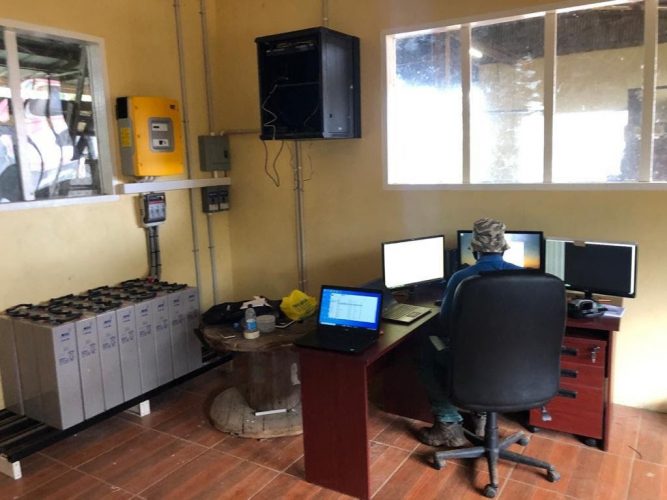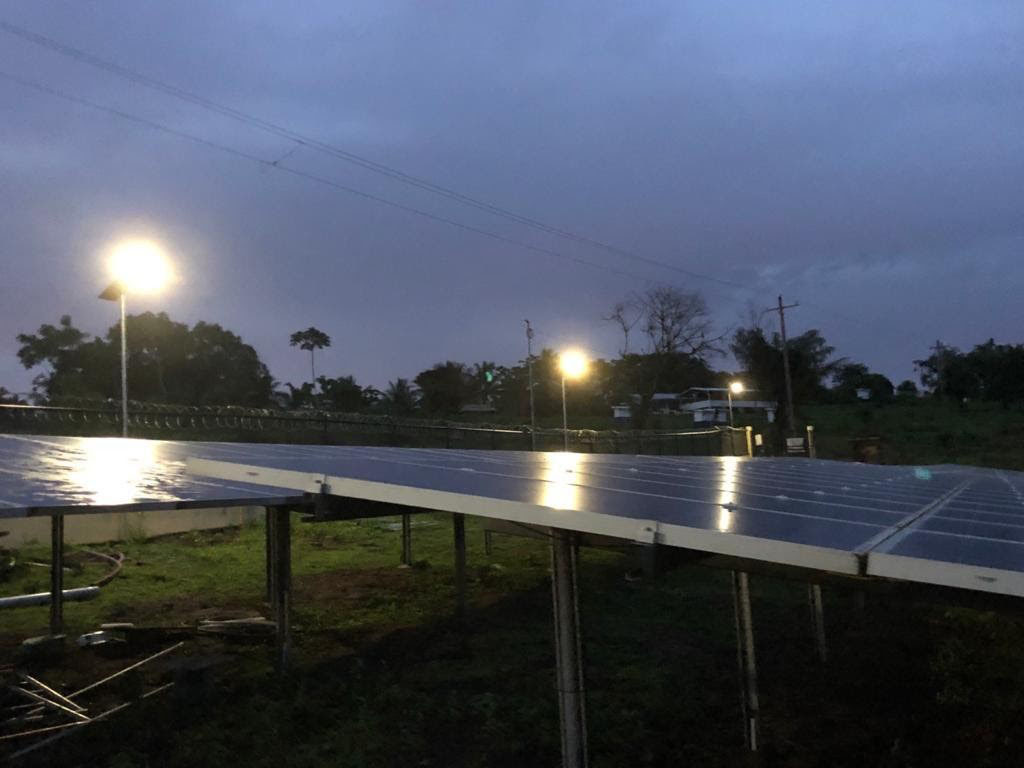The remedial works being undertaken at the Mabaruma Solar Farm and supervised by the Guyana Energy Agency (GEA) have progressed into the hybrid power system’s testing phase, Agency Head Mahender Sharma has said.
Responding to questions from this newspaper, Sharma said installation of the Supervisory Control and Data Acquisition (SCADA) system at the Mabaruma Power Company was completed at the end of the first week of June and pre-commissioning tests of the hybrid power system (solar farm and diesel generator) commenced on June 10.
He explained in the written response provided that these tests will continue for a week and will allow for information on the load profile and other system parameters to be obtained for programming the SCADA system.

With the farm operational, the community will receive electricity for 19 hours daily from 5am to 12pm.
Presently, additional batteries are still to be installed and the team is awaiting their arrival in the country. This newspaper was told that this battery system is expected in Guyana during the first week of July and will be transported to the solar farm for installation.
In addition, the installation team had to resort to procuring a transformer from the US instead of China as there were several delays in the delivery schedule for the battery energy storage system that is procured from Germany.
“The solar farm [capacity] is 4.0 megawatts and the batteries is 4.0 megawatts [and] when anything happens it would trip the system. So we have procured additional batteries which would charge it up to 6 megawatts and make sure the system becomes very stable,” now de facto Minister of Public Infrastructure David Patterson had explained back in December.
Patterson was, however, quick to note then that the final phase of the work is being done at no additional cost since money that was approved and remained from the terminated contract is being used.
“This is being done at no extra cost. The balance from the remaining part of the terminated contract is what is being used to fund the completion. Before Republic Day it should be up and running because it is just a matter of installing the batteries and connecting it,” Patterson had said on December 28 last year. The solar power farm was to have been operational since August, 2018.
The project is expected to be fully operational by July 31, 2020.
The COVID-19 pandemic has contributed to the delay of the project due to precautionary measures implemented both locally and internationally.
The GEA explained that travel restrictions implemented in Region One during the month of April and the reduced passenger load of flights to Mabaruma have been the main obstructions for the team executing the project.
Works on the $227 million solar power farm have been ongoing for at least three years.
The GEA was brought onto the project by the Ministry of Public Infrastructure to oversee the completion and commissioning of the solar farm subsequent to the termination of the services of the original contracting firm after its failure to replace the damaged equipment that was struck by lightning.
The ministry was forced to terminate the services of the German contractor, a subsidiary company of Swiss-based Meeco Group, for substandard work. The Ministry in a letter to Stabroek News on October 17, 2019 had explained that it terminated the contract with the German contractor due to a number of factors. “Most significantly, severe weather conditions causing damage to the electrical infrastructure – the timeframes were not met.”
The Mabaruma Solar Farm was described in the 2017 national budget as the first of several such farms which were to be established under the Hinterland Electrification Programme.
Minister of Finance Winston Jordan announced at the time that a budgetary allocation of almost $1 billion to implement a series of renewable energy and energy efficiency projects.
He said these interventions which are to be channelled through and managed by the Guyana Energy Agency, would include the installation of the first solar farm on a large scale in Mabaruma. When operational, the 400-kilowatt solar farm would afford an additional 17 hours of electricity to the 3,000 residents of Mabaruma.






